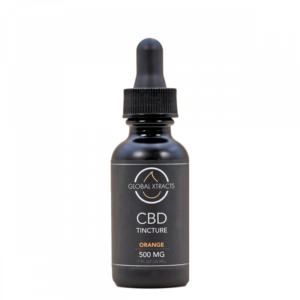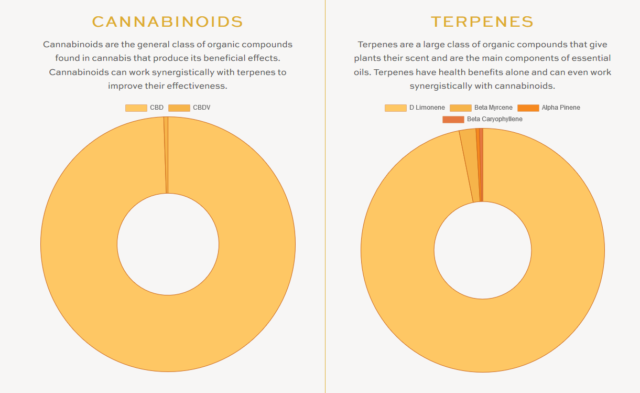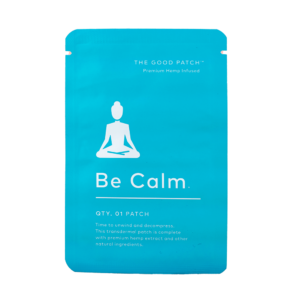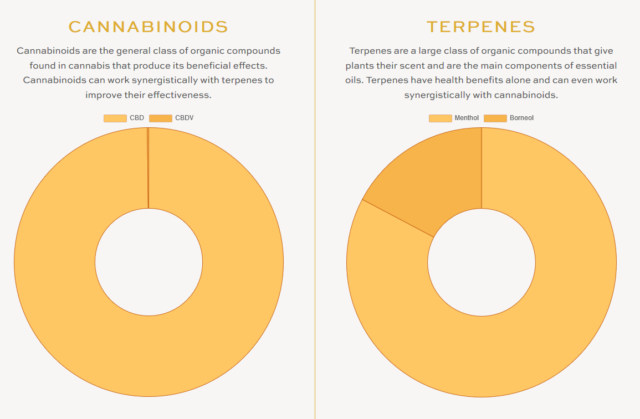The world has seemingly been turned upside down by the novel coronavirus (SARS-CoV-2) and the deaths associated with COVID-19. With so much uncertainty, many people are worried about the future. People are as worried about tomorrow, next week, and next month as they are next year.
There are many people hoarding food and other items, like the infamous toilet paper shortages everywhere. People are worried that the virus might affect themselves or their family, especially those caring for the very young, the elderly, or those with certain medical conditions. Many are out of work, whether temporary or permanent, and are struggling financially.
While Americans tend to have high stress and anxiety levels anyway, this just exacerbates the problem and brings everyone’s stress even higher. So, what can you do?
Living an overall healthy life can naturally make your body more resistant to stress and anxiety. This means eating healthy foods, exercising, and finding ways to manage stress, like mindfulness, yoga, or other hobbies you enjoy. Even journaling can help. You don’t have to make drastic changes today, but small steps, like adding one fruit and vegetable for dinner or doing lunges and stretching 3 days a week, can get you started in the right direction.
CBD can be complementary to these lifestyle changes to help you fight stress and anxiety while tackling your day with a sense of calm. The benefits of CBD are many and fighting cortisol is one of the main ones associated with stress and anxiety.
Cortisol is known as the stress hormone. Occasional stress is ok,but long term stress and elevated cortisol can be detrimental to your health. This can negatively affect your mood, digestion, sleep, weight, memory, libido, and more. CBD is thought to boost your defense to everyday stressors and reduce cortisol. Cortisol is also known to be exceptionally high in those with anxiety disorders.
The benefits of CBD are apparent, but which product is right for you? Here, we will highlight 4 CBD oil products for anxiety.
Plant People Co - Be Calm Hemp Extract + Adaptogens Capsules - 450mg
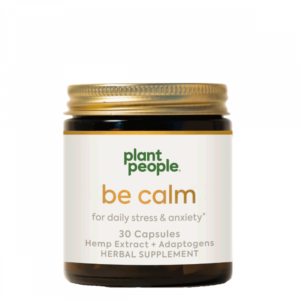
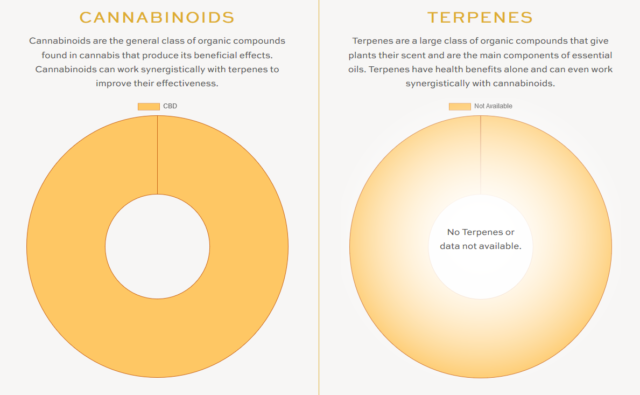
These Be Calm capsules have some wonderful ingredients to supplement the CBD. These capsules also contain Albizia (bark and flower), Avena Sativa, Ashwagandha, Schisandra berry, Holy Basil Leaf, and L-Theanine. This combination of ingredients is designed to function as an adaptogen to enhance your feeling of calmness and sense of wellbeing. One of the best choices for capsules out there to help fight stress and anxiety with CBD.
Verified Purchase - Keri T. - "I love these capsules!!! Using CBD tinctures used to help my my anxiety some, but after I tried CBD paired with the all natural herbal supplements and adaptogens in these capsules I couldn't go back. STRESS FREE ALL DAY!!!"
Global Xtracts - Phytocannabinoid-Rich Tincture - Orange - 1500mg
This orange tincture from Global Xtracts is made with Phytocannabinoid-Rich organically grown hemp oil, meaning you get the benefit of the "entourage effect" of the extra cannabinoids and terpenes. Along with CBD you will get the benefits from high levels of the uplifting terpene d-limonene that will help relieve stress and improve focus in addition to helping to ease occasional muscle soreness, and smaller amounts of cannabinoids and terpenes to improve the overall "entourage effect", enhancing the benefits of CBD to fight anxiety. With a light orange flavor, this tincture is pleasant to consume. One of the best CBD oils for anxiety along with our next closely related selection.
Verified Purchase - Kyle M. - "Big fan of the orange flavor. Many others I tried were either too plain or tasted too 'earthy'. Also, as a terpene enthusiast, I appreciate the high amount of limonene. I feel it really gives me a more focused feeling, especially when paired with my favorite 'herb'."
Populum - Advanced Hemp Oil - 1000mg
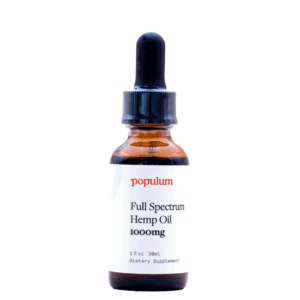
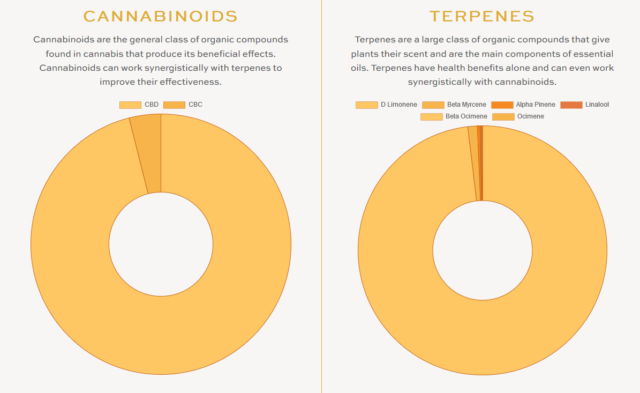
This full spectrum hemp oil packs a load of the uplifting terpene d-limonene that will help relieve anxiety and improve focus in addition to helping to ease occasional muscle soreness. Because of the d-limonene, orange oil, and stevia, this oil has a light sweet citrus flavor that make this enjoyable to consume. Enhancing the "entourage effect", this hemp oil also contains, CBC, beta-myrcene, alpha-pinene, linalool, and ocimene to improve relief from soreness and stress. A great CBD oil for anxiety.
Verified Purchase - Sam T. - "I use some of Populum's other products for my dog and can vouch for their quality. That's why I chose their 1000mg tincture. Great flavor with a full spectrum blend really helps relieve my back pain throughout the day and I feel much more level-headed as well."
The Good Patch - Hemp Infused Be Calm Patch - 15mg
These transdermal CBD patches are designed to consistently release their contents throughout your day for lasting relief. Along with 15mg of organically grown, non-GMO hemp extract, these patches will deliver menthol, designed to help to reduce soreness and to help you relax.
Verified Purchase - Sara L. - "I put one of these on before my morning yoga session. I can really tell a difference in the extra focus, calmness, and even balance, throughout my yoga practice. The patches last all day, so I use the cooling menthol feeling as a meditation focus point when the day gets hectic and stressful."
CBD FAQ
What is CBD?
Cannabidiol, or CBD, is a non-intoxicating compound found in the cannabis plant with broad therapeutic potential. It is one of over 100 cannabinoids.
Cannabinoids, which can be either made by plants (phytocannabinoids - phyto pertaining to plants) or produced naturally by the body (endocannabinoid - endo is short for endogenous, meaning originating in the body), are chemical compounds that interact with the body’s own endocannabinoid system. This system is known to manage homeostasis and regulate many bodily processes.
Scientist and physicians are leading many studies on the effects of CBD for a broad variety of conditions including chronic pain, insomnia, PTSD, anxiety, epilepsy, dementia, cancer, and more. Plenty of preclinical research and a fair amount of clinical studies have shown that CBD has strong anti-oxidant, anti-inflammatory, anticonvulsant, anti-depressant, anti-psychotic, anti-tumoral, and neuroprotective qualities.
Will CBD make you high and is CBD addictive?
Simple answer is NO. THC is the main culprit in cannabis that causes a "high", although there are other cannabinoids that will cause intoxication and euphoria. If you are sensitive to THC, there are many products that are made with 99%+ pure CBD that should be void of any amount of THC that would cause this effect.
Another important point is that CBD is NOT addictive. This might make CBD a potential alternative to opioid medications, like Oxycontin, for pain relief. CBD has reduced negative effects, like addiction while maintaining pain relief. CBD is though to even be beneficial for withdrawal from other drugs, like heroine.
Are CBD products legal in all 50 states and what is the difference between hemp and marijuana?
According to the federal government yes, as long as they are derived from hemp, not marijuana, and contain less than 0.3% THC. You do not need a medical marijuana card to buy or use hemp-derived CBD products. One caveat is that some states, like Nebraska and Idaho, have different state laws and only allow CBD if it has no THC (0.0%). Laws are changing everyday, so double check with your state laws to be safe.
What is the difference between hemp and marijuana?
Although both hemp and marijuana are Cannabis, there are significant differences between them both chemically and legally. Cannabis as hemp is federally legal and is defined as having less than 0.3% THC, with higher amount of CBD (usually about 5-15%). Cannabis as marijuana is federally illegal and is typically cultivated to produce very high amounts of THC, sometime upward of 25%.
All consumer CBD products you see on the market come from legal cannabis as hemp, which contain very little THC, but high CBD.
HOW DO I TAKE CBD?
One of the most popular types of CBD are CBD gummies. CBD gummies are in the “edible” or “ingestible” category. These are eaten just like the non-CBD gummies, but you probably shouldn’t eat the whole bag of the CBD variety. These are popular because of their tasty, fun form factor. Not all CBD gummies are created equal though. Other ingestible CBD products include CBD capsules, some tinctures, tablets, chocolates, beverages, suckers, and more.
CBD tinctures are one of the most popular types of CBD products. A simple CBD tincture is often only two ingredients, CBD isolate or a full-spectrum high CBD extract and a carrier oil (commonly fractionated coconut oil called MCT oil). You use these by placing them under your tongue for a short time and then swallowing. It is recommended to hold the oil under your tongue for about 1-2 minutes. This is because the CBD can be absorbed through blood capillaries under the tongue. You can also just swallow the tincture if you would like. CBD tinctures are often also flavored tastier experience.
Topical CBD products are a great way to apply CBD to a targeted area for direct effect. This category includes CBD lotions, CBD creams, CBD facial serums, and more. Topical CBD lotions and similar products are applied just like you would use a hydrating lotion for rough skin or cooling pain relief cream to a sore area. If you are having skin irritation or joint pain, you just rub the topical CBD onto the affected area.
Transdermal patches are a great way to get sustained release of CBD throughout your day for lasting relief. Similar to lidocaine and nicotine patches, CBD transdermal patches are designed to enhance the penetration of CBD so that it can get through your skin and into your bloodstream. CBD transdermal patches are placed on an area with a of arteries and veins, like the wrist, and stay on for up to 8 hours. Discrete, travel friendly, and ease of use make transdermal patches a great choice for CBD oil based products.
There are many more form factors, but the above just highlights some of the popular types. You can also find vapes and hemp flower for those who inhale, suppositories, shampoo, lip balm, and even pillows. Some of these have more therapeutic value than others (still scratching my head about the pillow).
HOW DOES CBD WORK?
Overall, the way CBD actually works is abundantly confusing. There is actually little classical cannabinoid receptor (CB1 and CB2) activation like many other cannabinoids, most notably THC. CBD does act on the endocannabinoid system, just in a somewhat unique fashion. One way is to inhibit an enzyme that breaks down endocannabinoids, thereby enhancing your natural endocannabinoid tone. CBD also acts through a variety of other receptors including GPR55, various TRP channels, PPAR-gamma, and more (even opioid receptors involved in pain). As Science progresses, we will undoubtedly start to create a more full and accurate picture of how CBD work, but for now, if you find relief with CBD, then it does not really matter that we do not know how it works.
Tylenol (acetaminophen/paracetamol) is taken all over the world everyday and we still don't understand how it works. CBD is in the same boat. We are not 100% sure how it works, but we do know it works.
DO CBD topicals actually WORK?
CBD topicals have proven effective for a broad variety of issues, such as chronic pain, dry skin, eczema, psoriasis, acne, skin cancer, and more. Many individuals swear by them.
WHAT IS THE DIFFERENCE? FULL SPECTRUM, BROAD SPECTRUM, ISOLATE?
- Full Spectrum: Full spectrum CBD is an extract that contains all compounds found naturally occurring in the plant, including terpenes, essential oils, and other cannabinoids. The full spectrum of cannabinoids, terpenes, and essential oils extracted from the plant work together to magnify the therapeutic benefits of each individual cannabinoid. This is commonly referred to as the “entourage effect“.
- Broad Spectrum: Broad spectrum CBD is a bit of a mix between Full Spectrum CBD and CBD Isolate. Like Full Spectrum CBD, the other compounds found within the plant are preserved in the extract; however, like CBD Isolate, THC is completely removed.
- Isolate: In scientific terms, an isolate is the purest form of a compound, which is produced by singularly extracting that compound from its environment and isolating it from all other compounds. With that being said, CBD isolate is the purest form of CBD, which is produced by removing all other compounds found in the plant including terpenes, flavonoids, plant parts, and other cannabinoids.
How much CBD should you take?
Many people wonder how much CBD they should take and unfortunately there is probably not a great solution for the exact amount. One complication is that everyone’s biology is different and will respond differently to the same compounds. Think about caffeine, some people cannot even have a sip of coffee without getting the jitters, while others need a double shot of espresso to get the morning started. There are even websites, similar to 23andMe, that will analyze your genetics then come up with a theoretical “best” THC to CBD ratio based on your particular genes. So a “one size fits all” is probably not realistic.
However to give an example of what is used, Epidiolex (the FDA approved version of CBD for seizures) can be used at 5 milligrams per kilogram of body weight (mg/kg) twice a day. So what does that mean? A 155 pound person is about 70 kilograms, so 5 mg/kg would equate to 350 mg CBD twice a day. Now this is pure CBD for a very specific disease, so it probably does not translate well to other disorders, but highlights the safety levels.
There is also something called the entourage (or ensemble) effect, whereby various cannabinoids and terpenes can work synergistically to enhance the effects of each other. So using a combination of other cannabinoids and terpenes in conjunction with CBD can reduce the amount of CBD you need.
Will I pass a drug test if I take CBD?
Unfortunately... it depends. Yes you will pass your drug test if you use only CBD (with a caveat). Most drug tests can distinguish between THC and CBD and their metabolites, but some low cost tests (like basic chemical reaction drug testing kits for the field and some antibody testing) can trigger false positives. Most legitimate testing labs will be able to distinguish between THC and CBD and their metabolites using a technology called mass spectrometry (mass spec or MS for short). The other caveat is that full spectrum products will contain some THC in them. Depending on the levels, this could also cause a positive reading on a drug test. You can however find many CBD isolate and CBD broad spectrum products that have had THC removed from them.
When does CBD start to work and how long does it stay in your system?
What we know from current data is that there is a lot of variability in study to study and from person to person. Tinctures are one of the most popular forma of CBD. Generally, CBD taken orally (by mouth, including other ingestibles like CBD gummies) tends to take about two to four hours to reach maximum levels in your blood and the elimination half-life has been reported anywhere from two hours up to 24 hours from a single use and two to five days for chronic oral administration. Your body also seem to absorbed more CBD when taken with a meal, particularly a high-fat meal.
One major vairable is that everyone’s biology is slightly different and will not respond in the exact same way to the same compounds. Using caffeine as an example, some people that take even a sip of coffee get the jitters, while others need their daily pot of coffee to get through the day. Some of this is tolerence, but a lot of it is genetics. There are even websites, like popular genetics genealogy websites, that will analyze your genetics then come up with a theoretical “best” THC to CBD ratio based on your particular genes. THis indicates that CBD and cannabinoids are not “one size fits all”.
Sublingual administration is close to ingestibles in terms of absorption. Here a tincture is placed under the tongue and help in place for one to two minutes. This is thought to slightly increase the amount of CBD absorbed because of the high amount of blood vessels under the tongue. So, the effect might start somewhat quicker than a capsule or CBD gummies, but some of the tincture will ultimately make it to your stomach.
Many other types of administration can drastically change how your body processes CBD. Topicals are mostly beneficial for the skin disorders, but many people find muscle and joint pain relief as well. Topical CBD tends to start working fairly quickly (5-30 minutes) and can last for a fair amount of time (many hours). Inhalation (vaping and smoking) will act the quickest because your lungs are the closest to a direct link to your blood stream, besides a direct venous or arterial injection. Also a consideration is that quick into the bloodstream usually means quicker out of the bloodstream. That mean the effects will start taking place within 1-5 minutes and the half-life is thought to be much shorter (around 2-4 hours) that ingestibles (capsules, gummies, tincures).
How is CBD made and isolated from the cannabis plant?
Making CBD is very similar to techniques used in the medical marijuana industry. First, you must grow and harvest the hemp (cannabis) plant. After the hemp plant has been harvested, CBD along with other cannabinoids and beneficial plant compounds are extracted using a number of different methods. Two popular methods are CO2 and ethanol extraction, but other methods such as hydrocarbon (e.g. butane and/or propane) or solventless (e.g. rosin press) extraction can also extract the beneficial organic compounds from the cannabis plant. This extract can be used as is or can be cleaned up and be further processed to purify each of the cannabinoids and terpenes separately, which are then used to mix together in desired ratios.
What is the difference between CBD oil and hemp seed oil?
CBD oil is often referred to as “Hemp Oil” and the names are often used interchangeably. This can be an issue, becasue a cold-pressed hemp oil derived only from the seeds of the plant that does not contain CBD exists. It is important to understand the difference between hemp oil made from seeds that contain no CBD, and hemp-based oil made from the cannabis plant that does contain CBD.
There are many deceptive products that will tout “Cannabis Sativa” on the label, but the ingredients only show hemp seed oil. Hemp seed oil is basically void of any CBD. Seek clearly labeled amount of CBD in milligrams(mg). This indicates the amount of CBD in the product and dosing often times as well.
Also keep in mind, Amazon's policy prohibits the sale of any CBD or cannabinoid products, but there can be a lot of shady marketing there to make you believe you are getting a quality product.
Is CBD Safe and Will CBD interact with my other medications?
Using common wellness dosing of CBD (often only 25 or 50 mg, but up to about 200 mg a day) it is unlikely that significant drug interactions would occur. However there is some possibility, especially as dosing amount rise, and there is more danger with some medications than others, like blood thinners. CBD and other cannabinoids can potentially interact with many pharmaceuticals by inhibiting the activity of cytochrome P450 (or CYP450). These CYP450 enzymes are found in the liver and account for the breakdown of a majority of pharmaceuticals on the market. People who use certain medications that require very tight blood level control (like blood thinners and other heart medication) should talk to their doctors.
What is CBD good for?
There are many potential benefits of CBD and it may be useful to treat:
- Chronic Pain
- Multiple Sclerosis
- Epilepsy & Seizures
- Insomnia
- Parkinson’s Disease
- Alzheimer’s Disease
- Chronic Anxiety
- Inflammatory Diseases
- Cancer
- Huntington’s Disease
- Eczema and Psoriasis
- And more...
Although most of this research is preclinical in nature, the major evidence seems to be most strong with CBD reducing pain and inflammation, relieving anxiety symptoms, and alleviating nausea, although there is much research ongoing.
DOES CBD HELP SLEEP/INSOMNIA?
Currently there are many studies being done on whether CBD can help you sleep better and combat insomnia. A medical study published in 2019 called “Cannabidiol (CBD) in Anxiety and Sleep: A Large Case Series” looked at whether CBD can improve sleep and/or reduce anxiety (one of the common factors contributing to insomnia). The study surveyed 72 subjects, with 47 experiencing anxiety and 25 experiencing poor sleep and/or insomnia. The subjects were each given 25 milligrams (mg) of CBD in capsule form each day. In the first month, 79.2 percent of the subjects reported lower anxiety levels and 66.7 percent of subjects reported better sleep and reduced insomnia.
Research published in the National Institutes of Health found that administering 160 mg of CBD to subjects reported sleeping significantly more than those who took a placebo. Another study in the Journal of Pharmacology found that CBD increased sleep time in rats.
Editor’s Note: Want to know even more about CBD? You can find articles on GrowersNetwork focused on…
and CBD for Cats
You can also check out TruPotency, the only online retailer that 3rd party tests every product they sell!
10 Best Gift Ideas for Cannabis Connoisseurs and Growing Aficionados (2022)
December 7, 2022Developing and Optimizing a Cannabis Cultivation System
December 14, 2021Dealing with Insomnia: How Can CBD Help?
December 10, 2020Your Guide to Sleep and CBD
December 7, 2020
Do you want to receive the next Grower's Spotlight as soon as it's available? Sign up below!


